Although the predominant focus of the upcoming 2024 election aligns closely with the two presidential candidates, several Americans neglect the array of ballot measures they should consider before casting a vote. In Georgia, questions concerning the state Tax Court, potentially increasing property taxes and other constitutional amendments could instill a sense of confusion in an uninformed voter. For Advanced Placement (AP) Comparative Government and Honors World History teacher Carolyn Galloway, voting without research can almost cause as much damage as not voting at all; for citizens to do themselves and their communities right by their ballots, investigating the democratic system in which one lives can set them up for significant civic success.
“I do not walk into a ballot situation cold. I research to the best of my ability, and I don’t like voting for people that I know nothing about. What makes me want to do this extra work? Well, it’s because I feel like I have an obligation to my community. For me, voting is almost sacred. I remind myself that my ability to vote in this country is a recent change, and it is even more recent for many of the people that I love and respect. It is not a privilege that I take lightly, it is a privilege that people fought and died for, that bled for. That people in other parts of the world do not have access to. So, am I going to vote? You bet. I know where I’m going to vote, I know how I’m going to vote, I make a plan, and I do it every year,” Galloway said.
Although the AP Comparative Government curriculum gears toward international analysis, Galloway effectively draws conclusions to global governmental systems and domestic ones, specifically through the way in which politicians become voted into office. The U.S. utilizes a single-member district (SMD) system with plurality, which means that constituencies will vote for one representative, and the winner needs to attain the bulk of votes, even if that amount of votes stands as less than the majority. This electoral system, alongside several others, can disproportionately impact marginalized groups due to disproportionate redistricting or an overrepresentation of the majority party. Due to the two-party system prevalent in the U.S., minor-party voters may feel a decrease in political efficacy, and feel as though their presence at the polls does not hold any weight. 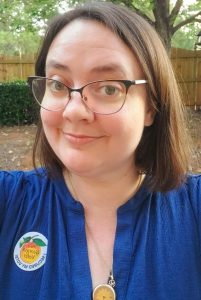
Fervently, Galloway acknowledges that in order for citizens to amass power in a democracy, people should understand their authority to change the systems. That authority aligns with researching one’s ballot and taking the time to question the institutions that have built modern American politics. In order to adequately serve others with a vote, education holds the key.
As a public school educator, Galloway receives consistent reminders as to why she votes — her students. The diverse perspectives she bears witness to daily allow her to enter her local polling place empowered by the fact that her vote represents the greater NC community. By honoring her commitment to championing young people, Galloway showcases the importance of selfless voting for those who can not.
“For me, democracy isn’t something that I have to look for. Democracy is the work of a lifetime. Democracy is why I am a public school teacher. I could teach at a private educational facility or a college, but I choose to teach at a public school because I have a foundational belief that people have the ability to govern themselves and to make decisions that impact their lives. But in order to be able to do that we need to be able to think critically [and] to evaluate information. That means that everyone — no matter their zip code, income level, race, religious affiliation, ethnicity, or any other identifying factors — should have access to quality education. For me, that is why I teach public education. That’s why I teach at NC, I believe in the mission. For me, the mission is making sure that our students are not just workers, but that our students are capable of making decisions that can impact their lives and the lives around them,” Galloway said.



![For several government and politics educators around the U.S., an election season represents a key time to educate their students through tangible examples. In the case of Advanced Placement (AP) Comparative Government teacher Carolyn Galloway, this opportunity not only excites her but fervently aligns with her zeal for democratic processes. Through her personal and professional experiences with voting and government, Galloway encourages her students — both those who can vote and those who can not — to enter into elections informed about any topics on the ballot. “[Voting] impacts your government, especially on the local level, because not a lot of people vote on the local level. Who you vote for, how you vote, and whether or not you understand what you are voting for impact everything from who your tax commissioner is, to who your president is, to what ballot measures pass. All of those impact the way the government works for you,” Galloway said.](https://nchschant.com/wp-content/uploads/2024/10/galloway-photo-2-1200x900.png)






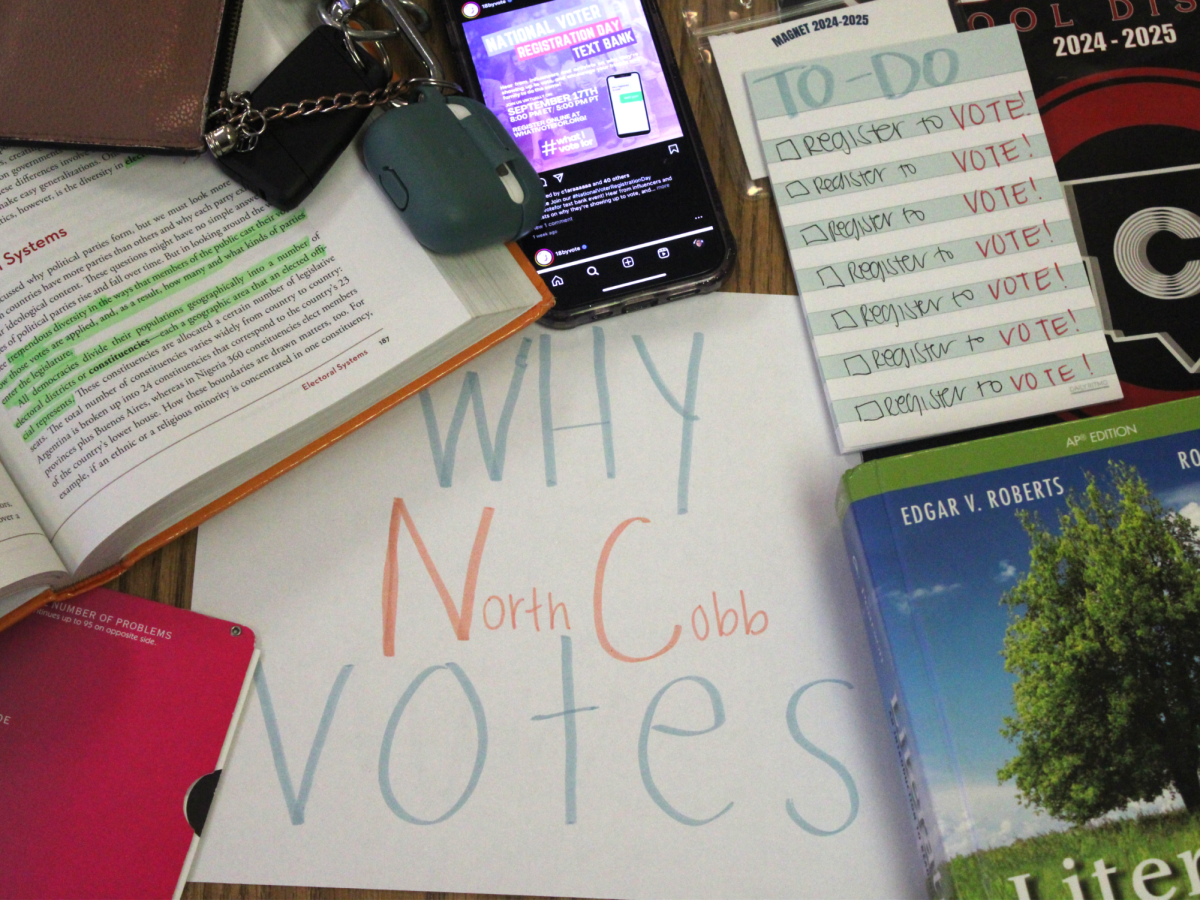
![During an election season, several Americans recall the extensive history — and conflict — with how voting has operated. The vast and often frustrating methods of voting used in decades past can allow modern citizens to appreciate the current methods in place, while also remembering the fond memories that occurred on the civic struggle bus. For Advanced Placement (AP) Macroeconomics and honors government and economics teacher Dr. Pamela Roach, her knowledge and lived experiences of different voting eras allow her to cherish her civic duty, and teach her students to do the same. Although it may not be the most efficacious, I think voting is one act of political participation. You [can] write and email your elected representative, whether it's at the local state or national level. [That] has a place in democracy because how else will those elected officials know what we, the people, want? ‘We the people’ is a powerful phrase, and no one takes the time to actually go and let their voice be heard by these individuals. So yeah, your voice matters,” Roach said.](https://nchschant.com/wp-content/uploads/2024/11/roach-photo-1-1200x900.png)
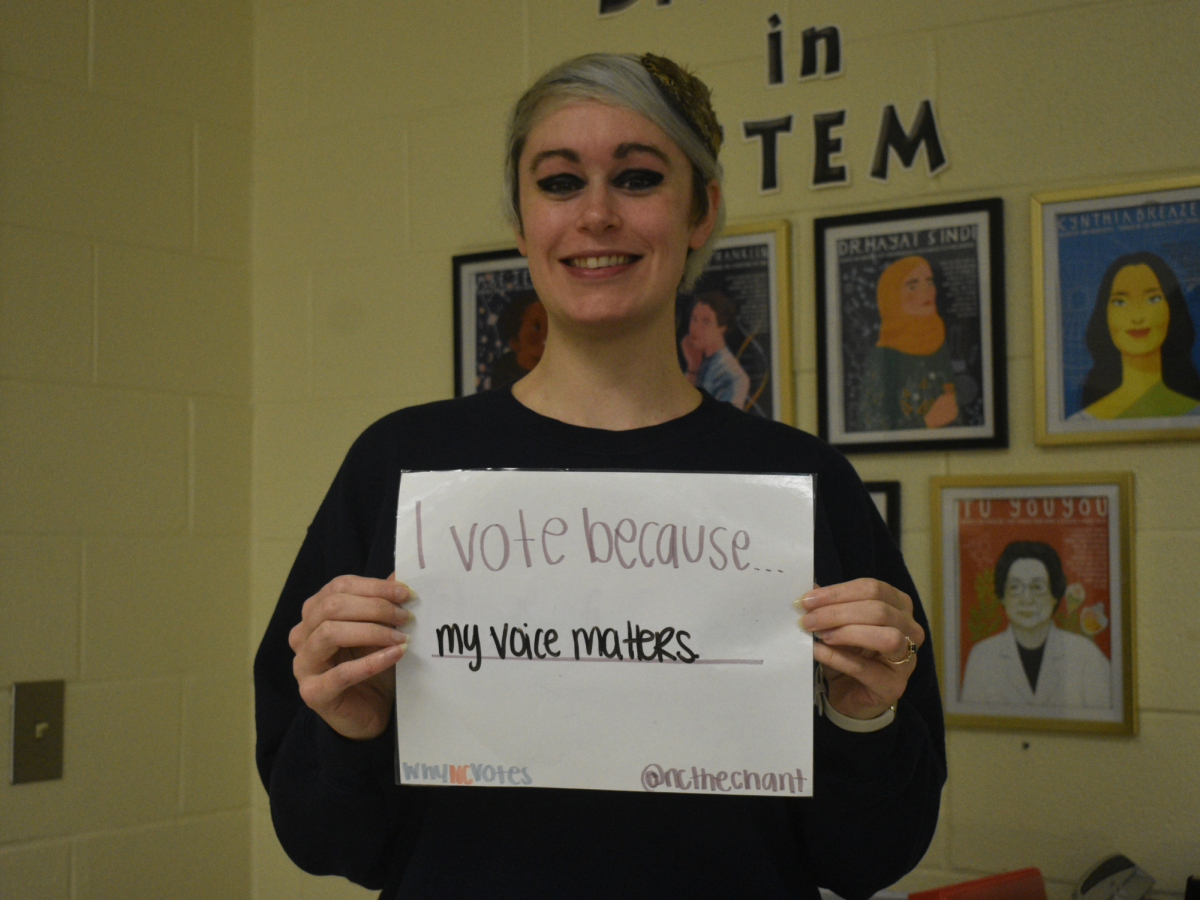
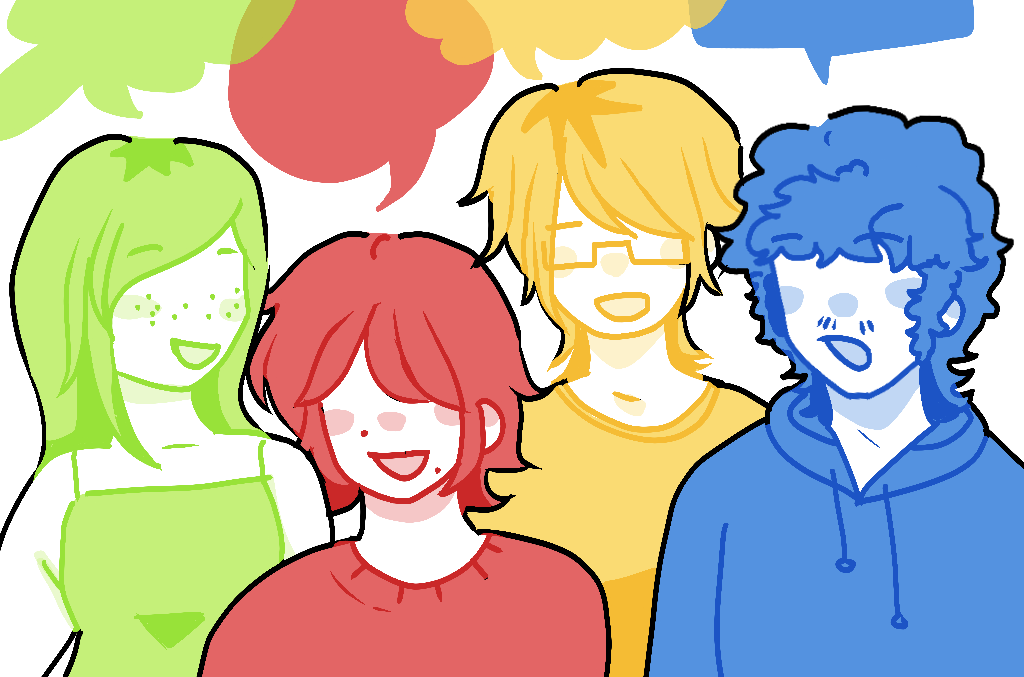
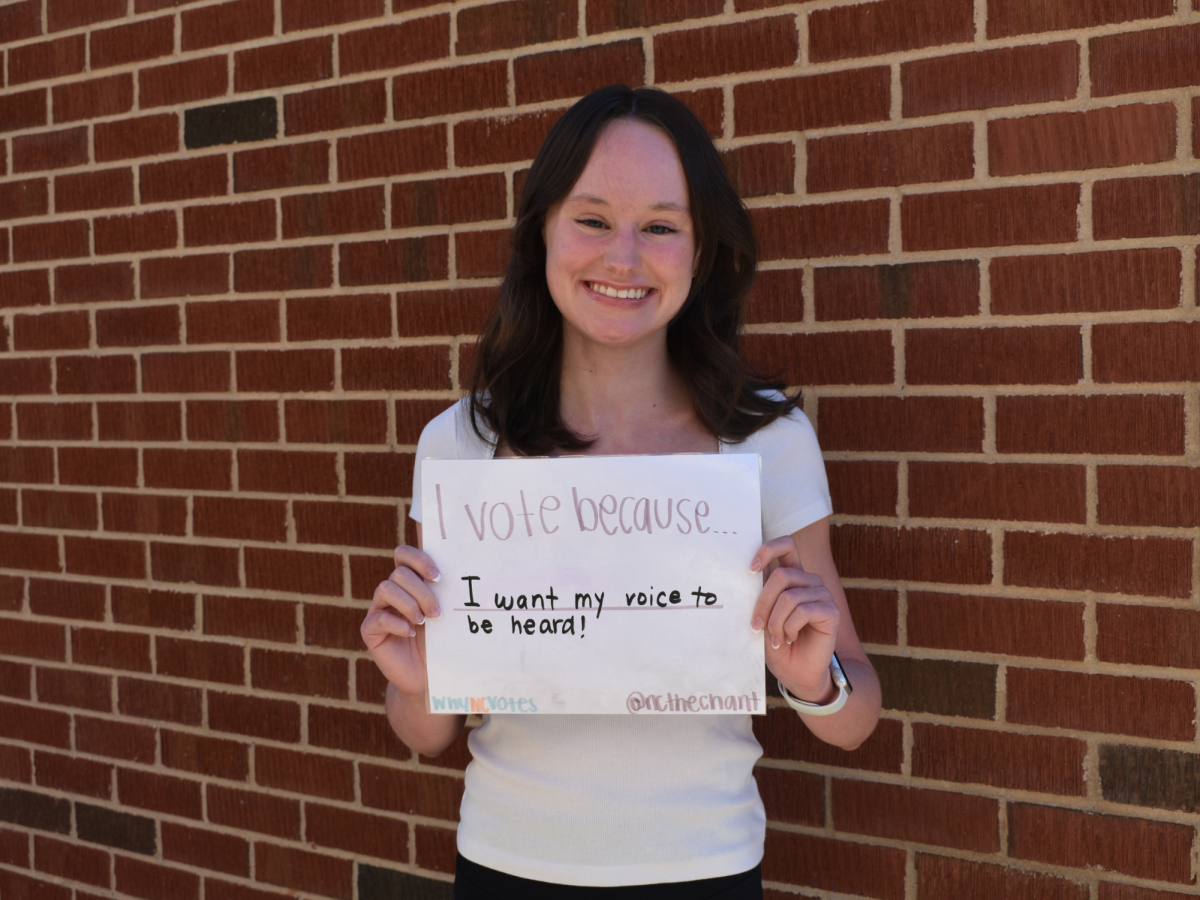
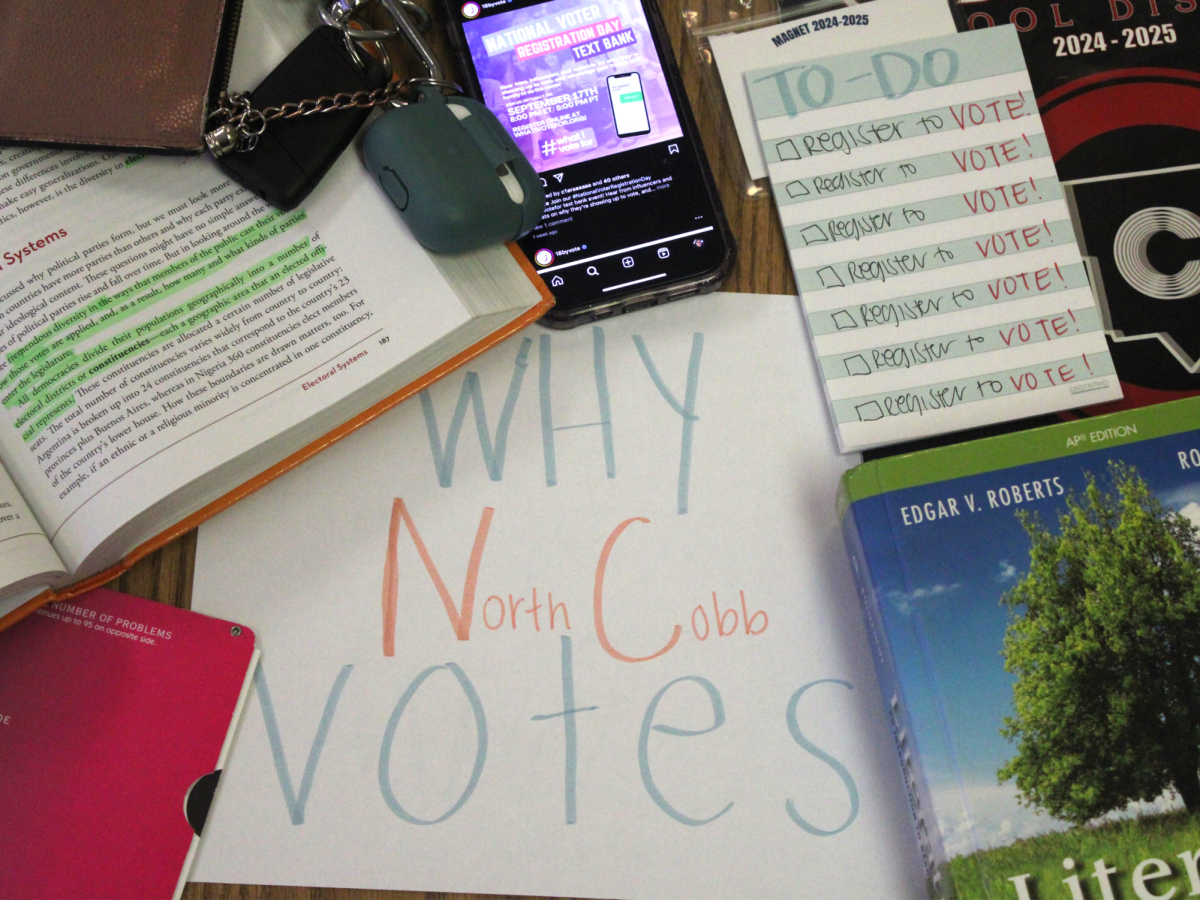
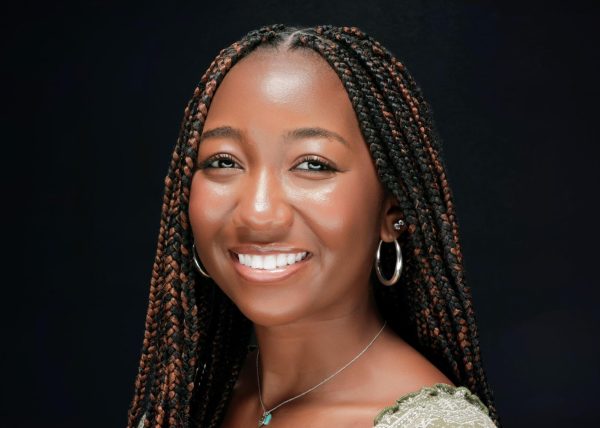
Chloe • Oct 28, 2024 at 2:41 PM
Such a great article! So great to see youth wanting to get involved!